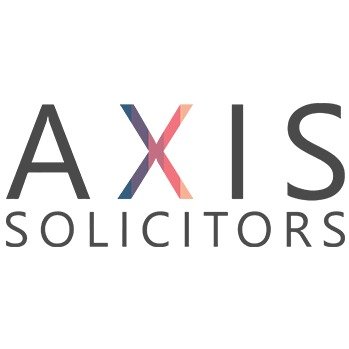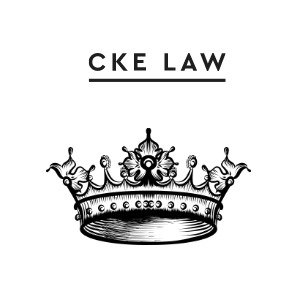Best Nonprofit & Charitable Organizations Lawyers in Manchester
Share your needs with us, get contacted by law firms.
Free. Takes 2 min.
List of the best lawyers in Manchester, United Kingdom
About Nonprofit & Charitable Organizations Law in Manchester, United Kingdom
Nonprofit and charitable organizations play a vital role in the Manchester community, providing various services and support to those in need. These organizations are established for purposes other than generating a profit and include charities, community groups, and other non-governmental organizations. In the UK, these entities must operate within a legal framework that ensures transparency, accountability, and proper use of resources. Legal compliance for nonprofit and charitable organizations is governed by regulations set out by the Charity Commission and other relevant bodies to ensure that the organizations remain faithful to their missions and objectives.
Why You May Need a Lawyer
Legal expertise is often required in several situations when dealing with nonprofit and charitable organizations in Manchester. Common scenarios include:
- Setting up a new charitable organization and navigating the registration process with the Charity Commission.
- Drafting and reviewing governing documents, such as constitutions or bylaws.
- Advising on compliance with charity law and regulations, including tax exemptions and benefits.
- Handling disputes between trustees or with other parties.
- Assisting in restructuring or merging with other organizations to ensure legal obligations are met.
- Advice on fundraising compliance and donor agreements.
- Guidance on data protection and privacy laws affecting fundraising activities.
- Undertaking risk assessments and liability advice for organizational activities.
Local Laws Overview
Several key legal aspects are relevant to those operating nonprofit and charitable organizations in Manchester:
- Charity Registration: Organizations with charitable aims and incomes exceeding £5,000 must register with the Charity Commission.
- Governance: It is essential for trustees to understand their legal responsibilities and the importance of good governance.
- Financial Compliance: Registered charities must prepare annual accounts and reports, which need to be submitted to the Charity Commission.
- Fundraising Regulations: Adherence to fundraising guidelines and transparency with donors is crucial.
- Data Protection: Compliance with the General Data Protection Regulation (GDPR) for data handling and donor privacy.
Frequently Asked Questions
1. What is the first step in setting up a nonprofit organization in Manchester?
The first step is to decide on the legal structure, such as a charitable company, charitable incorporated organization (CIO), or unincorporated association. Then draft a governing document and register with the Charity Commission if eligible.
2. Do all nonprofits need to register with the Charity Commission?
No, only charities with annual incomes over £5,000 must register. Smaller organizations may operate as small charities without formal registration.
3. What are the key responsibilities of charity trustees?
Trustees are responsible for the overall management and administration of the charity. They must act in the charity's best interests, comply with the law, and ensure transparency and accountability.
4. Are there any tax benefits for nonprofit organizations in Manchester?
Yes, registered charities can receive various tax reliefs, including exemption from corporation tax on profits from charitable activities and certain VAT concessions.
5. How do I know if my organization qualifies as a charity?
A charity must have exclusively charitable purposes that benefit the public. The purposes must fall within one or more of the categories recognized by law, such as the advancement of education, religion, health, or relief of poverty.
6. Can a charity make a profit?
While a charity can generate a surplus, it must be reinvested into its charitable activities. Charities cannot distribute profits to trustees or members.
7. What is the difference between a charity and a nonprofit organization?
While all charities are nonprofits, not all nonprofits are charities. Charities are specifically for public benefit and must be registered with the Charity Commission, while nonprofits may not always have to register or have charitable purposes.
8. Can a charity hire paid staff?
Yes, charities can hire staff and pay salaries, provided they adhere to employment laws and do not overly benefit any private individual disproportionally.
9. How can a charity remain compliant?
By staying informed about changes to charity law, maintaining proper financial records, submitting annual returns to the Charity Commission, and ensuring trustees understand their responsibilities.
10. What happens if a charity breaches its legal obligations?
Significant breaches could lead to interventions by the Charity Commission, including inquiries, restrictions, or even deregistration, depending on severity.
Additional Resources
For more information and guidance, consider consulting the following resources:
- The Charity Commission: Offers extensive guidance for charities on legal duties, obligations, and compliance.
- HM Revenue & Customs (HMRC): Provides information on tax relief and obligations for charities.
- Manchester Community Central: Offers support and resources for local voluntary, community, and social enterprise organizations.
- National Council for Voluntary Organizations (NCVO): Provides resources and advocacy for nonprofit organizations across the UK.
Next Steps
If you require legal assistance with nonprofit and charitable organizations law in Manchester, consider the following steps:
- Consult with a solicitor specialized in charity law to discuss your specific needs and concerns.
- Gather all relevant documentation and information regarding your organization and its activities.
- Evaluate whether your issue might be resolved through local resources or requires formal legal intervention.
- Reach out to local pro bono legal services if affordability is a concern.
Taking these steps will help ensure your nonprofit or charitable organization operates within the legal framework and fulfills its mission effectively.
Lawzana helps you find the best lawyers and law firms in Manchester through a curated and pre-screened list of qualified legal professionals. Our platform offers rankings and detailed profiles of attorneys and law firms, allowing you to compare based on practice areas, including Nonprofit & Charitable Organizations, experience, and client feedback.
Each profile includes a description of the firm's areas of practice, client reviews, team members and partners, year of establishment, spoken languages, office locations, contact information, social media presence, and any published articles or resources. Most firms on our platform speak English and are experienced in both local and international legal matters.
Get a quote from top-rated law firms in Manchester, United Kingdom — quickly, securely, and without unnecessary hassle.
Disclaimer:
The information provided on this page is for general informational purposes only and does not constitute legal advice. While we strive to ensure the accuracy and relevance of the content, legal information may change over time, and interpretations of the law can vary. You should always consult with a qualified legal professional for advice specific to your situation.
We disclaim all liability for actions taken or not taken based on the content of this page. If you believe any information is incorrect or outdated, please contact us, and we will review and update it where appropriate.















